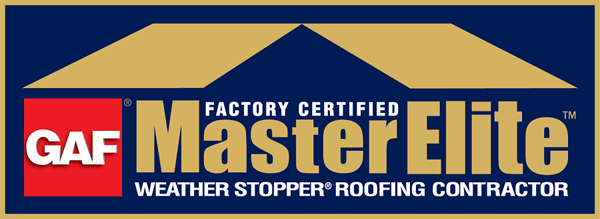Most financing experts would tell you that cash is the best way to pay for a new roof, with paying upfront letting you avoid high interest rates. The problem is roof replacements are a significant investment and most homeowners don’t have enough cash on hand for it. Luckily, homeowners have access to a wide range of flexible financing options.
Before you choose a financing option, there are a few things you should know. Evergreen Renovations & Roofing, your trusted roofing contractor, explains some of them in this guide.
The Time of the Year Can Affect the Prices of Roofing Options
You’ll need to do your research if you want to get great deals on roof replacements. You’ll have a better chance of finding great deals if you schedule your roof replacement in fall. That’s because the demand for contractor services usually drops as winter approaches. To offset the drop in demand, some contractors offer special deals.
Here’s a planning tip: Some would argue fall is the best time to pursue a roof replacement or a home exterior design or remodeling project. Since demand for contractor services is lower during fall, it’s easier to schedule an appointment with a contractor. Fall’s mild weather conditions lower the risk of weather-related project delays. Not to mention contractors can work more efficiently in fall’s mild weather conditions, ensuring your roofing project stays on track.
When is the peak season for contractors? Summer is when demand for contractor services is at its highest. That’s why if you plan on pursuing a roof replacement or remodeling project during this season, it’d be a good idea to schedule an appointment with a contractor ahead of time.
You Can Get Tax Incentives By Installing Certain Kinds of Roofs
You can get tax incentives by solar roofing and certain types of roofing systems. To learn more about these incentives, you can consult a trusted, local roofing contractor. In general, it’s best to consult local contractors since they’re more familiar with the incentives offered in your area, local building codes, and the local climate.
Some Financing Options Are Better Than Others
When it comes to home improvement projects, there’s no such thing as a one-size-fits-all approach. This applies to all of a roofing project’s aspects, even roof financing. That’s why you should compare all of the available financing options before making a decision.
What are your financing options? And what are their pros and cons?
Mortgage Refinancing or Cash-Out Refinancing
The best time to refinance a mortgage is when interest rates are lowered. You can calculate the amount you’ll receive through mortgage or cash-out refinancing by subtracting your remaining mortgage from the current market value of your home. As such, this option would be ideal for anyone who’s built up a lot of equity in their home. The less money you owe compared to the current value of your home, the more funding you can secure.
What are the requirements for a cash-out refinance? In general, you need to have a credit score of 620 to secure a mortgage refinance. However, the exact credit score needed depends on several factors such as the type of loan you’re applying for and how much cash you’ll receive.
Keep in mind that you can’t take all the equity out of your home. Lending companies usually require homeowners to maintain 15% to 20% equity in their homes after they refinance their mortgage. As a rule of thumb, you should assume only 80% of the value of your home can be refinanced.
Home Equity Loan
There’s also the option of taking out a home equity loan to finance a roof replacement or an interior design remodeling project. A home equity loan is arguably the best option if you have large roofing expenses. Compared to other financing options, home equity loans usually have lower interest rates and longer repayment terms. Plus, you could qualify for a tax deduction on your interest payments.
What are the disadvantages of taking out a home equity loan? This might not be the best option if you’re in a rush to secure funding. The approval process might take longer because it involves an appraisal and title search. You’d also need to have a strong credit score or steady income to qualify for a home equity loan. However, the biggest disadvantage is that you need to put up your home as collateral, which means you might lose your home if you fall behind on your loan repayments.
Credit Cards
It’s best to use credit cards for lower-cost roofing projects that can be paid over 12 to 18 months. That’s because credit cards have high-interest rates, although you can qualify for a 0% interest credit card if you have strong credit. Most finance experts wouldn’t recommend using your credit card to finance a roof replacement. However, this option might become more viable if your contractor offers easy payments.
Personal Loans
What if you haven’t had the chance to build up enough equity in your home? You might want to consider personal loans, which have less restrictive requirements than the aforementioned three options. Unlike a home equity loan, personal loans don’t require you to put your home up as collateral. The payment terms for personal loans are also more affordable in the long run. A personal loan is also a viable option if you’re in a rush to secure funding for a new roof or a home exterior design project, given that some online lenders can release the funds the next day after approval or up to a week at most.
Of course, personal loans have several disadvantages. One of them is higher interest rates. Since personal loans don’t require any collateral, they need to have interest rates higher than financing options involving equity.
Government-Insured Loans
Government-insured loans are another viable option for homeowners with less-than-stellar credit scores. Roofing loans insured by the Federal Housing Administration require lower minimum credit scores. There are two kinds of government-insured loans you can apply for: FHA 203(k) standard loans and FHA Title I loans. As the name suggests, the former involves refinancing your existing mortgage with an FHA 203(k) loan and diverting the costs of the roof replacement into your new mortgage. FHA 203(k) standard loans can cover roofing costs amounting to at least $5,000. The other option, FHA Title I loans, have fixed rates.
The amount of funding you can secure through an FHA Title I loan depends on your need and credit score. Loans worth $7,500 or less unsecured while those amounting to $7,500 and higher are secured by a mortgage or deed of trust on your property.
Contractor Financing
You should also consider the financing options offered by your local roofing contractor. Some contractors have business relationships with lenders, so they may be able to offer lower interest rates and better deals. Consult your local contractor to learn more about the financing options they offer.
Evergreen Renovations & Roofing, a company with over 35 years of combined experience, offers a wide range of professional roofing and remodeling services, including roof replacement and interior design services. For new contracts, Evergreen Renovations & Roofing is offering 0% interest financing options with no required payments 12 months. New contracts can also have a $500 off a complete roof project.
To learn more about our flexible financing options and payment terms, call us at (503) 720-4699 or fill out this form.




